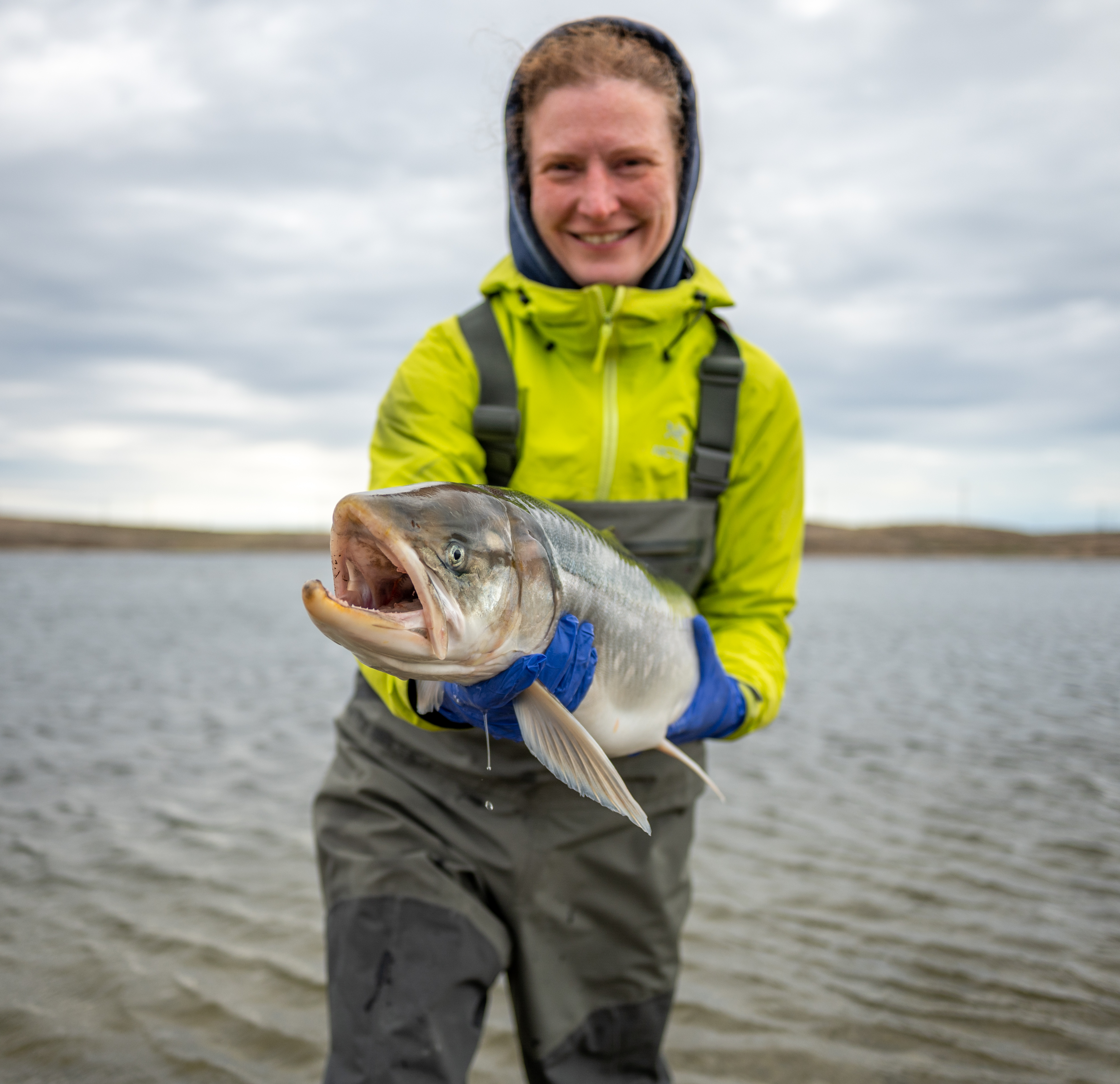Véronique Dubos

“Receiving this award is recognition that my work is going in the right direction. I am grateful and honoured by this distinction because I have worked with perseverance and passion. It encourages me to continue my research in the North and to continue sharing scientific and Inuit knowledge.”
Véronique Dubos
PhD in water sciences, 2023
Centre Eau Terre Environnement
Supervisor : André Saint-Hilaire
Véronique Dubos' thesis defense: “Characterization and modeling of the habitat of anadromous Arctic char (salvelinus alpinus) in freshwater, based on traditional Inuit knowledge and scientific methods”.
Véronique's research focused on Arctic char, a fish of great cultural, economic and social importance in Nunavik. Her work to characterize and model Arctic char habitat was carried out by combining science and traditional Inuit knowledge.
The results of her thesis have been presented at national and international conferences, including Arcticnet, The Ecological Society of America, the Canadian Water Resources Association and the Inuit Studies Conference. Véronique was also invited to take part in a workshop at the World Biodiversity Forum in Switzerland for her collaborative work with Inuit communities. Her results have led to four articles published in international peer-reviewed journals.
What brought you to INRS and what do you take away from your experience?
Despite a well-established career in consulting engineering in river hydraulics and hydrology, I was always thinking of going back to university to do a PhD and do research. I naturally turned to INRS because I had loved my master's experience. The atmosphere at INRS is friendly and stimulating. I also knew the academic and human qualities of my research supervisor, André St-Hilaire, who was encouraging and gave me a lot of freedom in my work.
My doctorate was one of the most enriching experiences of my life, particularly thanks to my northern experience, which was very strong. I learned a lot both scientifically and humanely.
Can you describe the challenge and impact of the research presented in your doctoral thesis?
The Arctic char fishery contributes significantly to the food security, well-being and culture of the Inuit populations, but stocks of this fish are declining in many places. It has to be said that this is a cold-water fish, not very tolerant of warmer water, and therefore vulnerable to climate change, but the habitats it uses were poorly understood.
In my thesis, to predict the quality of breeding habitats, I developed the first fuzzy logic model, based solely on traditional Inuit knowledge. I was also able to highlight the habitat preferences of fry (young-of-the-year), the stage most vulnerable to climate change. These results have implications for the conservation of the species.
The inclusion of traditional, qualitative Inuit knowledge in a natural science project involving quantitative habitat models was unconventional. However, it enriched our understanding of the species' biology, and enabled us to follow an ethical and respectful approach to research in an aboriginal environment. The thesis also documents exchanges with partner communities and the mobilization of knowledge achieved. This was an important aspect of the reciprocity of relations in an aboriginal context. Documenting these steps shows other students and their supervisors the importance of these approaches, which require an additional investment.
What does it mean to you to receive this award?
Receiving this award is recognition that my work is going in the right direction. I'm grateful and honoured by this distinction because I've worked with perseverance and passion. It encourages me to continue my research in the North and to continue sharing scientific and Inuit knowledge.
What's next for you now that you've graduated?
I'm currently doing a post-doctoral fellowship at Laval University, again in Arctic fish habitat, including Arctic char, but this time in Nunavut. I'm using acoustic telemetry, which allows me to see the positions of fish on a continuous basis, and I'm working in partnership with the local community of Cambridge Bay. I can't see myself doing anything other than research in this field.
